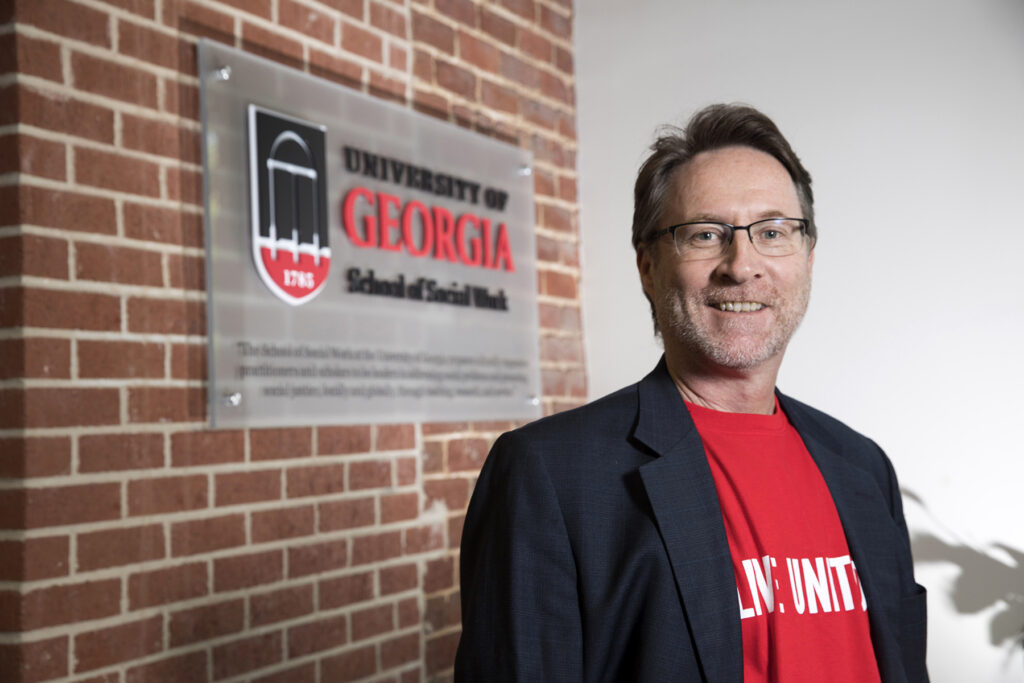Before Anthony Mallon even moved to Athens or began teaching at UGA, he was involved with United Way.
In Richmond, Virginia, when Mallon was a faculty member at Virginia Commonwealth University, he worked with the organization in many capacities, from job training to assisting with earned income tax credit programs to partnering with local agencies.
It was his experience in Richmond that led him to continue working with the nonprofit when he moved to Athens a few years later.
“Working with United Way there was so positive that when I came here, I was already inclined to have a positive view,” said Mallon, a clinical associate professor in the School of Social Work and the director of the Institute for Nonprofit Organizations.
United Way, a nonprofit that aims to initiate community-based and community-led solutions in areas like education, financial stability and health, is one of the many organizations supported by UGA’s Campaign for Charities.
Campaign for Charities is a campaign for charitable contributions to various organizations, and this year will run until Nov. 16.
Mallon was invited to be on the United Way board last year, and he also serves on its community impact subcommittee, which works to help develop the process by which agencies can apply for funding.
Although Mallon has more than 20 years in the nonprofit arena and is involved with other organizations as well, with regard to United Way, he loves its community impact model and the way in which it functions.
“It’s the fact that they help to coordinate community-wide strategic approaches, which is beyond what any single nonprofit can do,” Mallon said. “Individual nonprofits have their respective missions, and they’re each there to serve that mission. I work directly with many of these organizations, but it’s also really helpful to have entities such as United Way that can support the work of many nonprofit organizations addressing myriad challenges across the region. In so doing, they help to coordinate—not dictate, not micromanage—strategic solutions.”
Mallon said that one of the best parts about donating through Campaign for Charities is that it’s easy and efficient.
“What’s great is with Campaign for Charities, you can look through the list, go to the website of an organization and see if its mission matches areas that you’re interested in, whether it’s environmental justice, animal rights, broader issues of community service, like United Way, or specific things like domestic violence prevention such as Project Safe,” Mallon said.
On one hand, donors can look through the Campaign for Charities list and simply choose an organization they like. But on the other hand, the available list gives donors options of potential organizations that they might want to delve a little deeper into with research and volunteering.
Mallon said the spirit of solidarity is also encouraged by donating through Campaign for Charities.
“There’s a camaraderie to giving,” he said. “Especially now during COVID, there are fewer ways for us to feel like we have a sense of community.”
Mallon said when donating to an organization, be it United Way or another nonprofit, he encourages people to “do their homework.”
In other words, go ahead and take the next step by getting to know the organization and then volunteering for them, if possible.
“For example, if you want to volunteer for Habitat for Humanity, people think the only way they can do that is to go out and build houses, but nonprofits like this also need other kinds of help, such as assistance with fundraising, tutoring or even being a board member,” Mallon said. “Donating money is great, and I encourage people to do that, but donating your time and expertise—especially once you find an organization that you really like through donating—could be really helpful.
Mallon said he encourages people to think about their own skills and areas of interest. Whatever your expertise may be, whether it’s managing social media accounts, marketing or grant writing, chances are, there’s an organization that could use the help.
“I would really encourage people to think about the skills they have, in addition to the financial resources,” Mallon said. “If you’re not someone who has financial resources to donate, if you could even volunteer one day a month, that’s something to consider, too.”
